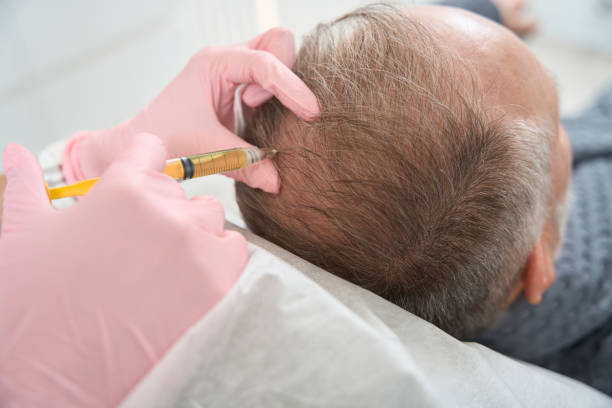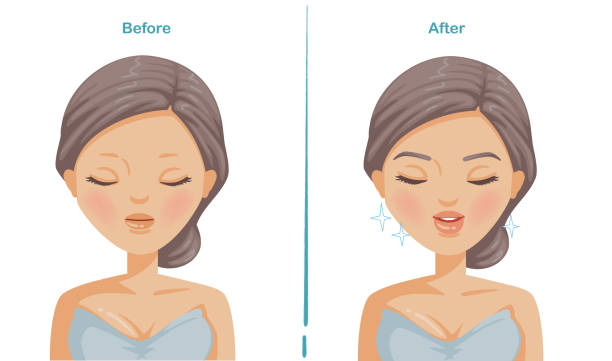The most painful side-effects of cancer treatment might not be physical pain. These side effects may not be accompanied by fatigue or digestive problems. They may be only temporary. Hair loss can be a very distressing side effect for cancer patients.
Alopecia (hair loss) can make you feel exposed, vulnerable, and self-conscious. It is a sign of change in your life and may cause feelings of anger or depression. You may also be asked questions by others that you’re not ready to answer.
The threat of losing hair can make some feel more powerless after receiving a diagnosis of cancer. It also gives you the chance to prepare yourself emotionally for hair loss and to take action before it occurs. Understanding why hair falls and how to deal with it when it happens is helpful.
What causes hair fall in cancer patients
Chemotherapy targets rapidly dividing cancer cells. Some healthy cells, such as those that line the mouth, stomach, and hair follicles, also divide quickly. Alopecia can occur when cancer treatment, particularly certain chemotherapy drugs, damages the healthy, rapidly growing cells that are responsible for hair growth. Radiation treatment can also lead to hair loss in the area of the body that is being treated.
Hair loss usually starts within two weeks after starting chemotherapy and continues for two months. Hair loss usually starts three weeks after your first radiation treatment. Hair loss can continue during treatment and for a few days afterward.
Hair loss can occur anywhere on the body, including on the head (eyelashes, eyebrows), arms, legs, underarms, and pubic area.
Who experiences hair loss?
Not everyone will experience hair loss during cancer treatment. Two patients who take the same drug may experience hair loss in different ways. Another patient might not lose hair. The extent of hair fall can vary widely depending on factors such as the treatment type, dosage, frequency, and method.
Hair may fall out in some cases but then become dull, dry, and thin. Hair loss can occur in many ways: slowly, rapidly, in clumps, or completely. Before hair loss, the scalp may feel itchy or tender.
Hair will regrow after the cancer treatment is over. Hair usually grows back three to six months following the end of chemotherapy and radiation. Hair regrowth can begin even before the therapy is completed. Hair often grows back with a different texture and color at first.
The effectiveness of minoxidil to prevent or reduce hair loss from cancer treatment has not been proven. The FDA has approved cooling caps for certain patients. These caps may protect hair cells against chemotherapy drugs. The cooling cap is designed to reduce cellular activity and make it harder for drugs to penetrate the hair follicles.
How to cope with cancer-related hair thinning
It can be hard to cope with hair loss, and other changes in your appearance and body when you are battling cancer. There are ways to deal with and prepare for hair loss. Here are 12 tips to cope with hair loss caused by cancer:
Allow yourself time. It may be hard to accept losing your hair. It can take some time for you to get used to your new look. Then, it may be more time before you feel confident about yourself. It’s okay if you feel angry. Understand that hair loss is temporary. Hair will grow back after treatment.
You are still you. The cancer treatment and the loss of hair can be a shock. You may feel disoriented when you look in the mirror and don’t recognize yourself. You are still the same inside. Celebrate your unique qualities and celebrate yourself.
Be prepared for changes in your hair before you start cancer treatment. Be ready for hair changes before you begin cancer treatments. Speak to your doctor to find out what to expect. Consult a hair stylist familiar with cancer-related baldness. Some people wear headcovers, and others do not. You should wear whatever you feel most comfortable with. It would be best if you also considered how you would react to the reactions of others.
Think about head coverings. Get a wig or hairpiece before you start losing hair. Find a shop that offers wigs in your hair color and texture. You can also have it styled before you buy. Some insurance policies or assistance programs will cover the cost.
Consider getting a shorter hairstyle before cancer treatment, especially if your hair is long. If your hair is short, the hair loss may not be as shocking or upsetting. You may feel more in control if you cut your hair. Some people shave off their hair as soon as it starts to fall to avoid irritation and itching.
Do not be harsh on your hair. Use a gentle shampoo and a wide-toothed comb with soft bristles. Special attention should be paid to the scalp, which can become dry and itchy. Pat hair gently dry with a soft cloth. Use hair clips, elastic bands, and barrettes that do not pull your hair. New hair may be fragile and brittle, and it will require special care.
Do not use irritants. Heat or chemicals can cause hair loss. Avoid coloring your hair, getting perms, or relaxing it. Avoid using hair dryers, electric rollers, or curling and flat irons. Avoid chemical products containing alcohol, menthol, and other ingredients that can dry your hair out or irritate your skin. Use a gentle shampoo.
Protect the head. Sleep on a satin pillowcase or wear a hair net to prevent hair from clumping together. Use sunscreen on your scalp when you are out in the sunlight. Sunburn can lead to more itching, flaking, and dryness. Wear a scarf or hat to protect your scalp in cold weather.
Highlight your assets. Experiment to improve your appearance and feel better about yourself. Buy new clothes and makeup to highlight your best features. Skin and nails should be taken care of. Choose eyebrow pencils or eyeliners in the same shade as your eyelashes and eyebrows or one shade lighter. Maintain routine hygiene.
Take some time to pamper yourself. Do something enjoyable to distract your attention from your diagnosis. Take a walk, watch a movie, listen to some music, or get a massage, facial, manicure, pedicure, or other treatment. Use behavioral health techniques such as deep breathing, relaxation techniques, and meditation.
A healthy lifestyle is important to look and feel better. Speak to your doctor about healthy lifestyle options. A dietitian can help you develop a healthy meal plan, and a rehabilitation specialist can help create an exercise program for you.
Create a support network. Talk to your family and friends about the challenges you face. A cancer support group can be a good way to meet people who are also dealing with hair loss. You can also get advice and ideas from other people who have dealt with similar changes. It may be helpful to consult a psychologist or therapist.





